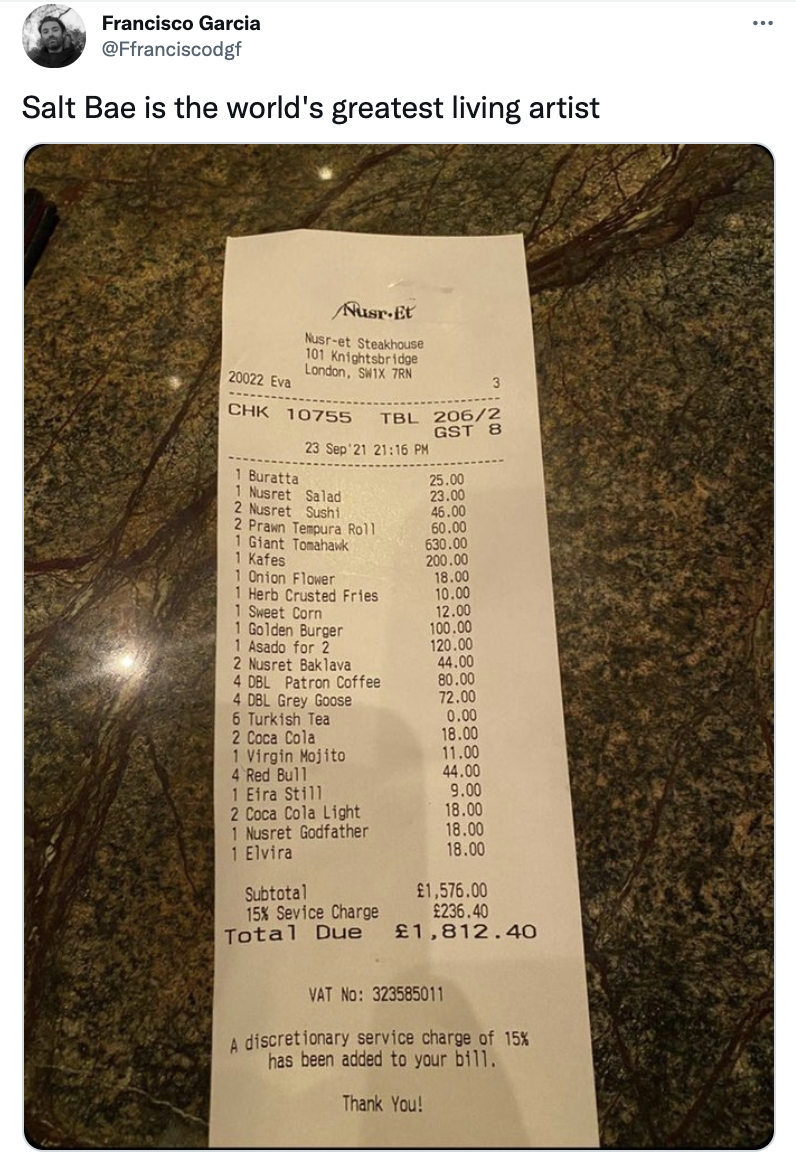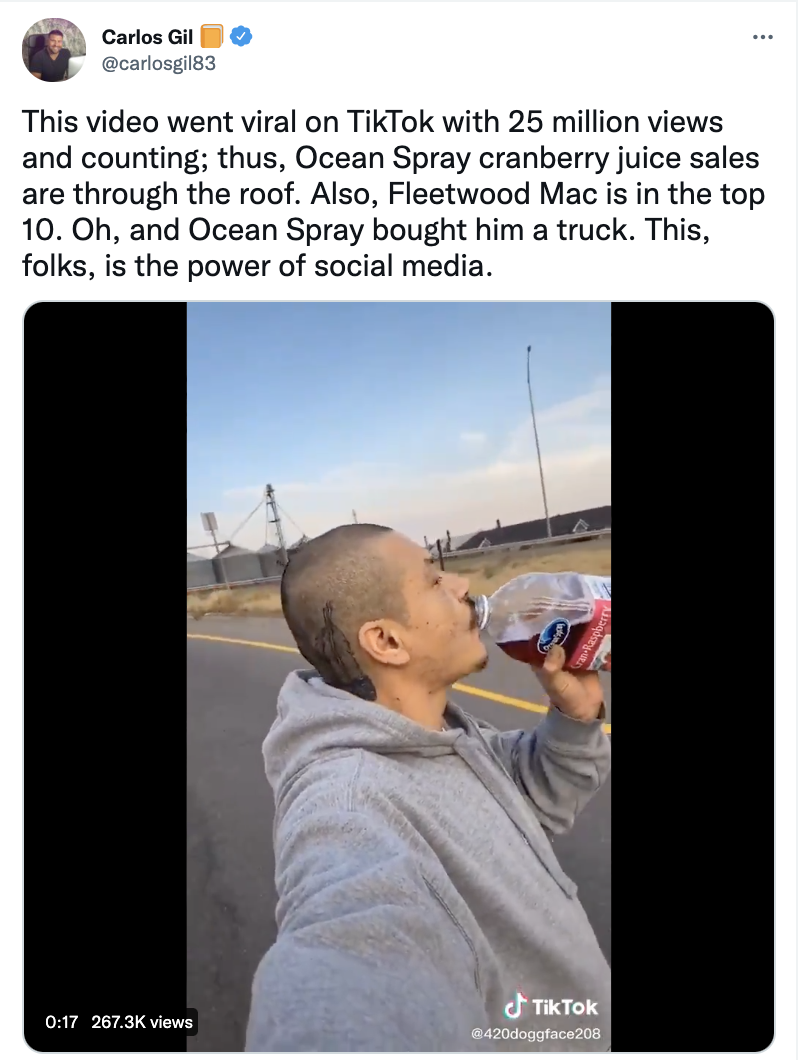What can memes teach brands about the power of social media?
Social media has been up in arms this week. The issue? Eye-watering prices at the new Nusr-Et Steakhouse in Knightsbridge, the latest venture from viral meme sensation Salt Bae.
In 2017, a video of Turkish chef Nusret Gökçe sprinkling salt over his forearm onto meat went viral. Twitter user @lolalissaa reposted the video onto her Twitter with the message “so this is #saltbae” and a meme was born. Gökçe already had two restaurants in Istanbul and Dubai but his profile and popularity expanded enormously after the viral video that dubbed him Salt Bae. He now has 14 restaurants worldwide.
The sky-high prices at Nusr-Et Knightsbridge have had everyone talking, from celebs like Gemma Collins (who woke up “feeling sick” after paying £1450 for a steak), to Twitter commentators who actually rather enjoy watching the rich and famous get ripped off.
And Gökçe has his online profile to thank for the success of these ventures. People are seemingly willing to pay extortionate prices to see Salt Bae sprinkle salt on their steak - and it’s been confirmed by punters that Salt Bae himself only appears to serve you when you order the most expensive items on the menu. (Perhaps it’s best to think of it as a real life Cameo, rather than a dining experience).
It got us thinking about commercial enterprises born from other popular memes, and what brands can learn from it all.
Side-eying Chloe, anyone? The little girl whose iconic side-eye has been reused for all manner of reacts in recent years scored big last month when her parents sold the NFT of the original image for £54,000 to put towards her college fees.
And what about Brittany Tomlinson, otherwise known as Kombucha Girl? After a video of her trying Kombucha for the first time went viral, she was catapulted to notoriety and eventually fired from her job. Not to worry, though: she was soon signed by UTA agency and has since bagged a bunch of content work with brands Netflix and Sabra.
Then there’s Ocean Spray Guy - possibly the purest thing on the internet. Nathan Apodaca (@420doggface208)’s viral video was one of the best things to come out of 2020: a grown man skateboarding down a California highway, listening to Fleetwood Mac and drinking cranberry Ocean Spray. The vibes? Immaculate.
After the video exploded, Apodaca was gifted a brand new truck by the brand (full of Ocean Spray, obvs) and signed a deal with a Hollywood agent for some ad spots. But he wasn’t the only beneficiary. Ocean Spray themselves enjoyed a spike in awareness and sales and Fleetwood Mac began to chart with the song that had soundtracked the video.
So we can congratulate Ocean Spray’s marketing team on a job well done here. Like Salt Bae, they’ve capitalised on a viral moment without alienating the internet. So what can we learn from their success? It feels like these cultural phenomena have a few things in common.
-
Listen to what your audience likes
We’ve said it before and we’ll say it again: you have to know your audience. Keep your ear to the ground to stay on top of what’s important to them, what’s making them laugh and anything they’re less than impressed by. Salt Bae cottoned on to the scale of the internet’s obsession, and acted on it.
-
Being quick on your feet/reactive
A week is a lifetime in internet years. It pays to have a nimble and flexible structure to your relationship with your agency, so you can move fast and trust their creativity when the potato is hot.
-
Add value to the conversation
Don’t just recycle something someone’s seen a million times. By sending Nathan Apodaca a truck full of drinks, Ocean Spray created a new moment - one that was silly, fun and wholesome, in keeping with the conversation around the meme. In doing so, they obeyed the cardinal rule of brands interacting with a community: make sure you’re giving and not just taking.
There’s always so much to learn from online culture - even something as seemingly ridiculous as a £1450 steak can hold nuggets of wisdom - and the best insights always come from audiences themselves. We consider ourselves experts in online audiences, so if you’d like some help getting to know yours better, you know where to find us.


